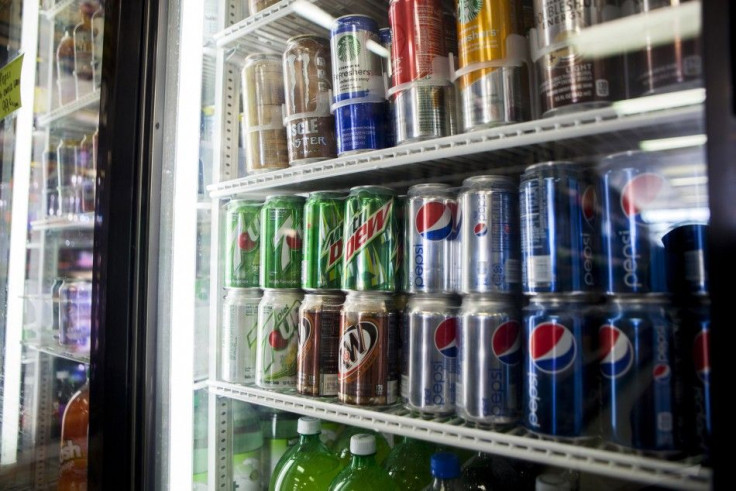Diet soda may lead to unhealthy eating, research reveals

Drinking diet soda to cut back on calories may actually bring opposite results since it is possibly linked with eating unhealthy foods, a new study claims. Researchers report that people who opted for low-calorie soft drinks were found to consume a higher proportion of foods loaded with sugar, salt, fat and cholesterol than when they drink sugary beverages.
In the study, more than 20,000 adults in the US were asked to report everything they ate or drank on two different days. More than 90 percent of the participants said they ate discretionary foods, or those that are calorically dense but low in nutritional value, which amounted to an average of 482 calories per day. Discretionary foods, which are called such because the human body does not need them to function, include cookies, ice cream, fries, pastries and chocolate. The researchers found that on the days the participants drank diet or sugar-free drinks, they consumed about 49 more calories from discretionary foods, while on the days that they drank regular sugary beverages, the participants only consumed about 30 extra calories.
The research also revealed that among the obese people who participated, drinking diet beverages was linked with consuming even more additional calories than non-obese people from discretionary foods. The obese people consumed an average of 73 extra calories from discretionary foods on days they drank diet drinks, compared with the days they did not have these drinks. For comparison, on the days they consumed regular sugary beverages, obese people consumed 32 extra discretionary-food calories.
According to the study, published in the Journal of the Academy of Nutrition and Dietetics, opting for diet drinks may not help people control their weight if they do not eat healthy foods and consider portion sizes. “If people simply substitute diet beverages for sugar-sweetened beverages, it may not have the intended effect because they may just eat those calories rather than drink them. We'd recommend that people carefully document their caloric intake from both beverages and discretionary foods because both of these add calories – and possibly weight – to the body,” says study author Ruopeng An, an assistant professor of kinesiology and community health at the University of Illinois at Urbana-Champaign.
The study did not prove that drinking diet sodas causes a person to eat more unhealthy foods, the researchers note. An says it is possible that people who consume diet beverages feel justified in eating more, or they feel compelled to eat more of these high-calorie foods to feel satisfied. It is also possible that people who feel badly about eating unhealthy foods assuage their guilt by drinking diet beverages, An adds.
The American Beverage Association, or ABA, says the researchers did not prove their theories. In a statement, the group claims that the study presented something that is already well-known: many people eat things that are not required by the human body. “From that unsurprising observation, the author leaps to the unproven and unsubstantiated claim that diet soda 'may' be why people choose to eat a range of other foods such as french fries or doughnuts rather than eat exclusively from the major food groups,” says William Dermody Jr., vice president of policy at the ABA. He adds that according to previous research, diet sodas are an effective tool to help people lose weight and maintain weight loss.
Contact the writer at feedback@ibtimes.com.au or tell us what you think below.






